Heavy Medal Finalist #13: To Night Owl from Dogfish
Introduction by Heavy Medal Committee Member Cherylynn

To Night Owl from Dogfish is unique among the candidates we are considering in format. This is an epistolary novel. The whole book is made up of emails, voice mails, and letters between the characters. I think this is a different way to organize and present the story, a stylistic choice that works well with this story. It tells what everyone is feeling without characters all being aware of what was happening. These letters are written by many people, not just the main characters. Each character is distinct although not always completely fleshed out.
Even in the first few emails sent back and forth, the two main characters are distinct. Bett Devlin is dramatic and adventurous. She comes from California, loves to surf, and is interested in sharks: so her nickname is dogfish. Her writing includes capital letters and + symbols to express herself. Avery Bloom is quieter and spends her time worrying. She comes from New York, is interested in science and medicine, and has periodic insomnia: so her nickname is night owl. Her writing has much more exact grammar. Even the parenting styles of their fathers are different. Sam Bloom is Papa who loves his daughter to the moon and is warm and reassuring to a worried daughter. Marlow Devlin is encouraging and wants his daughter to enjoy life.
ADVERTISEMENT
ADVERTISEMENT
The plot seems like a plot we have heard before. We start with two girls who are forced to meet because they are going to become a family when their dads get married. The dads breakup–the girls try to get them back together—old and new love interests cause problems—everything ends in a wedding. I would like to say that I thought this was refreshing in so many ways. The story started with a matchmaking story, but it is more about sisters and friendship. Looked at from the perspective of the main characters and the deep friendship that they develop over two summers, I found it to be more unique. The ending is one of the best parts. There is a wedding, but it is not the dads who get together, but an old lady who is special in all of their lives.
I found this book to be a heartwarming story of two girls who become best friends. This is a subject that is important to children and how friends are made is something they care very much about. It definitely meets the criterium of excellence of presentation for a child audience. It is a little less serious than so many others this season, but the theme of acceptance and love is strong and well developed and the character delineation is exceptional considering the special format used to write this novel. I think this is a strong contribution to children’s literature this year.
Filed under: Book Discussion
About Roxanne Hsu Feldman
Roxanne Hsu Feldman is the Middle School (4th to 8th grade) Librarian at the Dalton School in New York City. She served on the 2002 and 2013 Newbery Committees. Roxanne was also a member of 2008-2009 Notable Books for Children, 2015 Best Fiction for Young Adults, and the 2017 Odyssey Award Committees. In 2016 Roxanne was one of the three judges for the Boston Globe-Horn Book Awards. You can reach her at at roxannefeldman@gmail.com.
ADVERTISEMENT
ADVERTISEMENT
SLJ Blog Network
2024 Books from Pura Belpré Winners
In Memorium: The Great Étienne Delessert Passes Away
Winnie-The-Pooh | Review
Parsing Religion in Public Schools
Finding My Own Team Canteen, a cover reveal and guest post by Amalie Jahn
ADVERTISEMENT



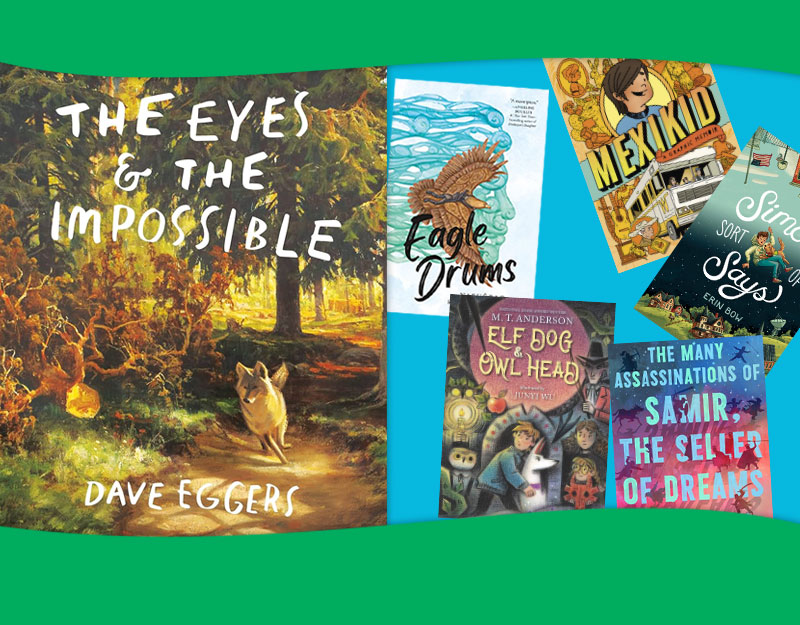
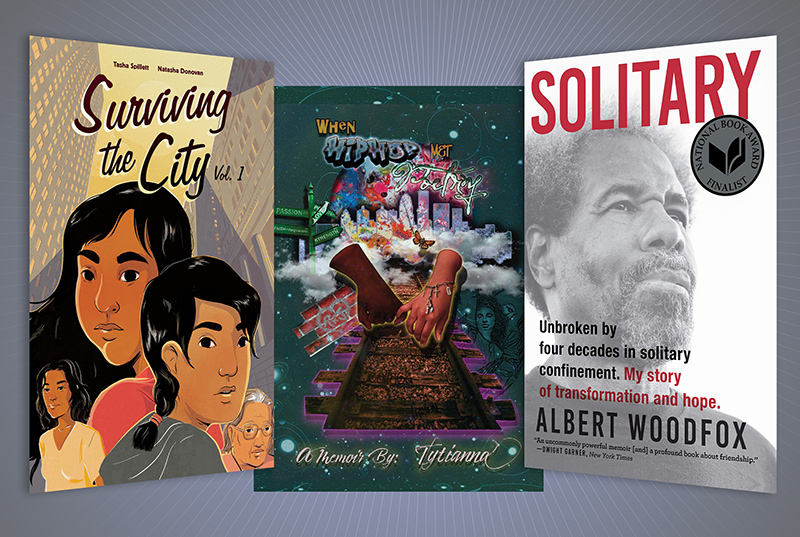
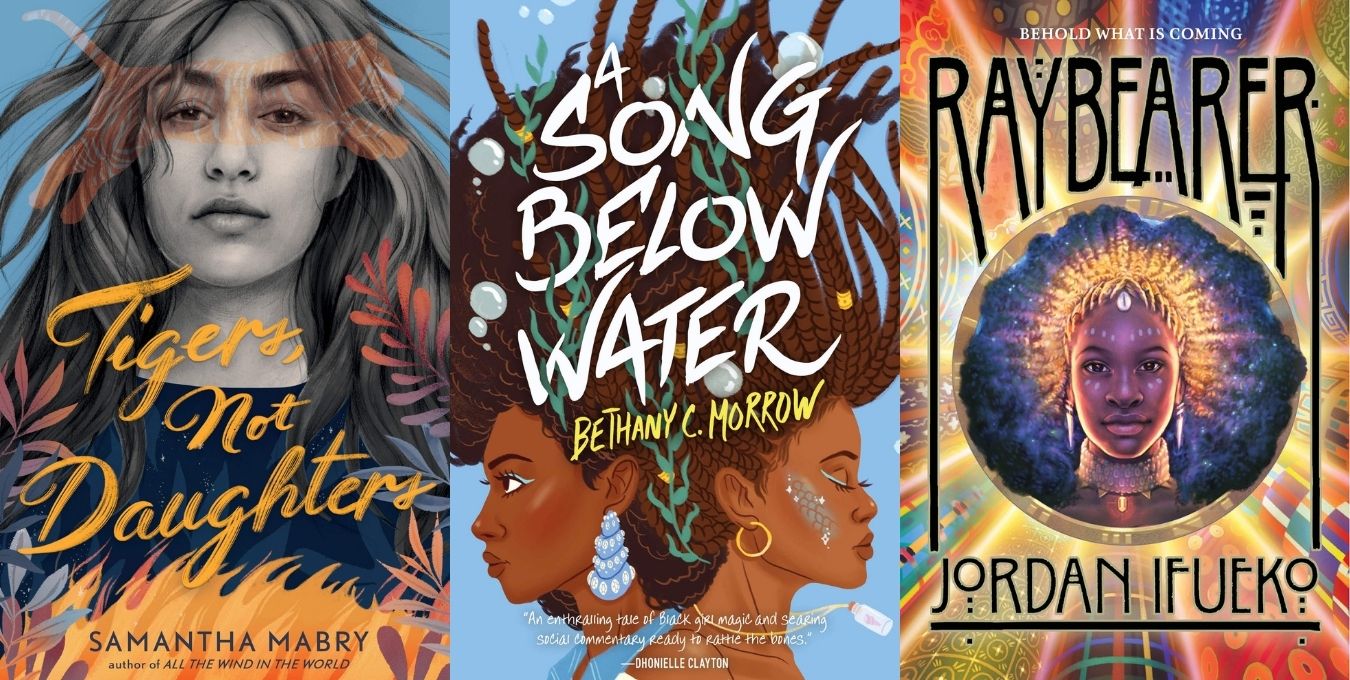
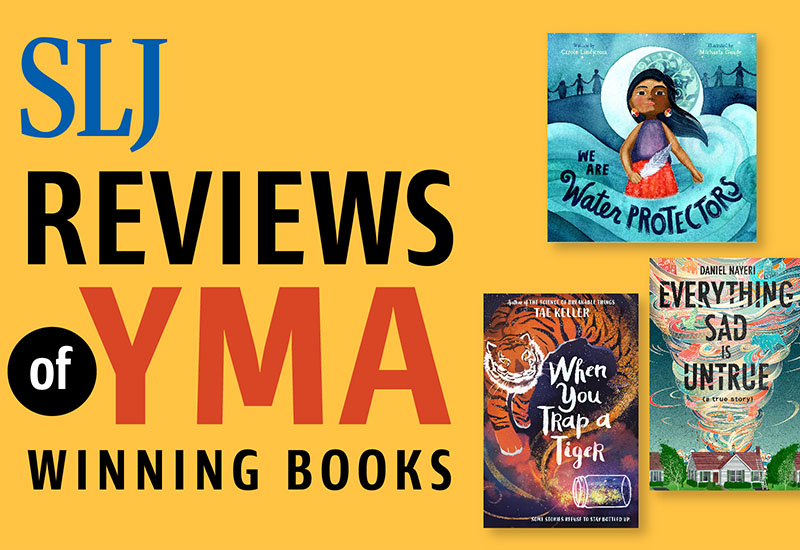
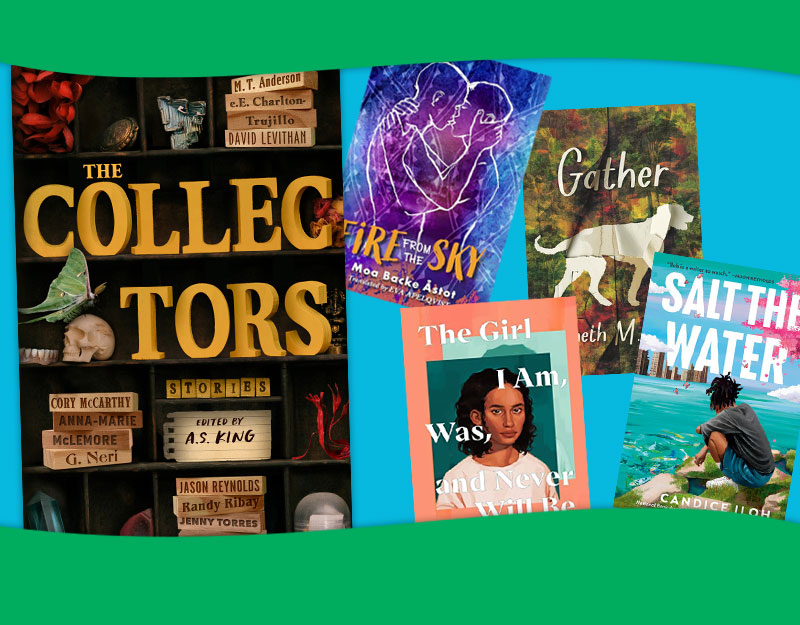
Good intro Cherylynn!
I enjoyed getting to know Bett and Avery who reminded me of some wonderful students I have taught.
The letters were creative and allowed the voice of each character to come through and provide the reader with a real sense of who they were inside. Excellent character development with these two throughout the story!
The development of theme was solid and the twist at the end gave the plot some strength.
Although I liked this book a lot, when compared to at least 5 or 6 other titles, it does not stand as strong when compared in light of different parts of the Newbery criteria.
I agree that the character development in this book is outstanding. Bett and Avery are distinct and interesting. Also the great range of other characters are also so engaging. Their extended family and friends add so much to the overall context of the story. I also appreciate that we sometimes get information from these characters as well. The range of letters and other information that are added into this book adds so much to the overall context of the story and also help us to get to know our two main characters better. I think using this range of information modes coming from a range of characters really added to the complexity of this novel.
I agree. I think way in which the epistolary format is used in this book is really exceptional. Sometimes books that use a format like this (or a diary format) stretch the reader’s credulity a bit with all the exposition but I think using emails and voicemails and even emails from side characters really helps to flesh out the story without having the give the girls more insight than they would actually have.
I also thought that Bett and Avery and their fathers were very well written so as to be distinctive and realistic. I loved that idea that their fathers were going to go on a 10 week long motorcycle trip to China after having a long distance relationship for so long. As an adult, I could see why they would think that was romantic and also how it could go horribly wrong.
The summer camp settings were also written in such a way as to make them seem very real. I liked how the authors chose to put them in two very distinctive camps with such lush descriptions of the surroundings.
I thought the voices in this novel were distinctive enough that the reader could tell who was speaking (or writing) at any time.
Thanks fo the great introduction Cherylynn. I thought that this was a very refreshing and modern take on the epistolary medium. There are few books that take this approach, but I think it was done really well in this case. The characters really seemed to come to life in their writing and you really got a sense of their personalities just in how they wrote to one another. Their writing felt honest and kept true to their mental and emotional age. I think young readers will see themselves or connect to either one of the characters.
This story does fall into being very predictable. Of course the two girls are going to become friends and try everything to remain in each other’s lives. It seemed like a modern take on The Parent Trap. However, I did like the twist with the wedding at the end. I liked that element of surprise that it wasn’t actually the dads.
I agree with everyone who has commented on the epistolary format of this novel being a great choice. It was fun and engaging. The letters/emails/notes etc. felt current and in the authentic voice of real kids. I will say it didn’t always read aloud easily because the headings of the emails were cumbersome to read, though they were also necessary to be clear about who was speaking/receiving the correspondence. I read this aloud with my Newbery age range son and we both enjoyed it. It was funny and engaging throughout. Though, as Amanda mentioned, the plot was somewhat predictable, some of the twists and turns, particularly the ending, were delightful surprises. The plot and the characters were distinct and distinguished. I have difficulty evaluating the setting of the story in terms of Newbery criteria because the setting was varied throughout. Two separate camps, each girl’s home, Grandma’s house, Kristina’s house. It was a lot to juggle as a reader and perhaps even harder as authors to create a distinguished setting. Likewise I’m not sure the themes of the story (friendship, what it means to be a family, intergenerational connection?) were especially distinguished, even though they are satisfying. I’m sure many of my young readers will enjoy this book for years to come, I’m not sure that it rises to the level of the most distinguished contribution to children’s literature this year.
I agree with the above, it was a readable and interesting novel. The characters were fully formed, even the supporting characters. I had a strong feeling of caring and love from both girls and their families but overall for me, it’s not a top contender. I do believe it will fly off the shelves and be enormously popular though.
If the Newbery Medal criteria included popularity, there is no doubt that To Night Owl from Dogfish would successfully hit the mark. Told through email exchanges and letters, this plot-driven title is easily accessible and immediately engaging. Reminiscent of the Parent Trap, To Night Owl from Dogfish presents a fun, fast-paced tale of matchmaking, friendship and family dynamics that is played out against the classic childhood summer camp setting.
Protagonists Bett and Avery’s voices are authentic, humorous, and distinct, providing readers with great insight into their personalities and developing friendship as the two plot to dismantle and then repair their fathers’ romance. Secondary characters, also introduced through emails and letters, serve to propel the plot and underscore the themes but do little to provide additional depth to Bett and Avery’s characters.
The strengths of To Night Owl from Dogfish rest in its storytelling and overall themes of friendship and family – both traditional and nontraditional. Its weaknesses lie in the limits set in the epistolary framework. The reader is merely an eavesdropper, and both the setting and the character development fall short because of this.
Other troubling elements include the introduction to Brielle and her family. It was unnecessary, added little and nothing significant, and was more of a distraction than enhancement to the story. In addition, there were puzzling plotlines that demanded reader acceptance. For example, why would the camp director allow one girl to go with Katrina and not the other? She wasn’t the emergency contact for either girl. Would the girls really have communicated in full sentences? Lastly, I’m always weary of so many references to current technologies, celebrities, etc. (FaceBook, Lady Gaga, STEM, Prius, text messaging, 23andMe, Google calendar, and so on) because they do nothing but limit the shelf life of the book. (This is not a Newbery “issue” but still a concern.)
To Night Owl from Dogfish is light and entertaining, but the reader’s relationship with the book ends with the turn of the final page. There are no memorable characters to miss, no extraordinary passages to highlight or repeat, and no desire to return to “Camp Anywhere.” Nothing stands out as distinguished.
I agree with what you say here Tamara, there are so many problematic elements for me with this book, many of which you note here, but summing them up the adults in this book act like teenagers way to much for me to make them truly credible as adult characters. So it really stretches credibility for me in that the girls act like adults and most of the adults act like kids.
Thank you, Tamara, for the sentence, “The reader is merely an eavesdropper and both the setting and the character development fall short because of this.” I didn’t realize it until you said this, but I do feel like an eavesdropper in this story.
I am not sure why the details of the girls leaving CIGI should strain credulity. On page 103, the camp director writes the dads and makes it pretty clear that Avery was allowed to leave with Kristina only because she is her biological mother. Otherwise, like Bett, she would have had to wait for her emergency contact.
I am not saying the book doesn’t require a lot of suspension of disbelief (Avery’s mom being a famous playwright who happens to be near the camp, Gaga’s path to stardom, the climax on the lake, etc.) but for the most part that’s just the world of this book — it was all congruous. For me, the credulity-straining parts of CARTER JONES or LINE TENDER to swallow, not because they were necessarily harder to believe, but because they felt more incongruous against generally more “realistic” environments.
I agree with Susan below. The portrayal of the adults relative to the kids and their respective behaviors didn’t bother me, since it was nicely clear the apples didn’t fall far from the trees.
As Kristina is a non-custodial parent (revealed only later in the book), the camp would not have allowed her to take Avery. Was she just walking around with a copy of the birth certificate? How else was she going to “prove” that she was her mother, if she was not in the official documentation.
I think it’s important to note that there are plenty of neurological diverse, flighty, unreliable, mentally ill and even criminal parents out there. Not all parents are staid and ‘adult’ acting. I liked how messy the dads were– some of us have seen or have had parents like these ourselves. I found their foibles not outside adult human behavior at all. Yes, it’s unlikely that every adult in the book is so zany– but is it more unrealistic than the stories where all the adults are (conveniently for the story) not paying attention or completely absent?
Tamara, You make an excellent point about the introduction of Brielle and her family.
I also saw it as a distraction.
I was curious about that as well. I didn’t see the need to add in the extra information about Brielle’s family. It did not add to the plot and seemed unnecessary.
I see numerous comments that this book covers no new ground and the plot is thus, undistinguished. I disagree. I loved watching these two girls observe their fathers handling (and modeling) courtship, romance and break-up in a healthy way. The fact that their dads are gay also confirms what may feel mainstream to some of us, but not to many who live in my conservative community: gay people court and love and have families just like straight people. And their kids are just fine with it. The book did not beat us over the head with its lessons about family, it showed us through characters and circumstances that felt real to me. My only complaint is that Avery had pretty serious anxiety and OCD issues – I wanted someone to get her some help. The book seemed to imply that she could confront and conquer her fears. For someone with OCD, it is not that easy.
I liked how the more we hear about Avery’s dad, the more we realize that her anxiety issues probably come from him– and while she’s away from him at camp (the first one) her symptoms improve!
I may be in the minority here in loving every part of this book except the very end. It was clear Gaga and Dinos would be a couple, and I figured the wedding was theirs. So I didn’t like the lengths to which the authors went to conceal the fact, even misleading (“You’re sisters now” (283)). What does stringing along readers who might be tricked accomplish in a book like this? It did such a good job in transparent characterization up to this point, that authorial intervention felt out-of-place and heavy-handed.
Otherwise I loved it. If it had stuck with its initial reverse Parent Trap premise, I might have agreed with Tamara about the book’s lightness. But like SAL & GABI, it got so much better than it needed to be and has a similar generosity of spirit. One of the themes of the book, as rather too baldly stated in the final toast, is ever-widening circles, and (to Tamara’s issue) that’s why Brielle is there — her addition followed naturally from the earlier welcoming of Gaga and Kristina and Javier etc.
And the book was laugh out loud funny. (I don’t have it with me so sadly can’t quote my favorite line. It’s what Bett hopes will happen when the dads see each other again in New York.)
One of my favorite LOL parts:
p 156
Dogfish: ‘I have “supplies” in the house because I’m late getting this whole thing. So I went + got a “pad.” I put it in my underwear. It feels like a hot-dog bun in there. I swear to you I’m never going to get used to this!’
p 157
Night Owl: ‘The best thing is to keep a calendar to help remind you… If you don’t want to write “period” on a certain date you could just put a red dot. But maybe that would be sort of obvious. So you could put in an emoji, or draw a random picture to throw people off the track, like maybe a leprechaun’
OK, here’s mine:
“The two dads would be like, Whaaat???” + they would start to smile + tear up a little but pretend they weren’t + you + I would go to the bathroom + let them talk in private until the miracle of deep feelings kicked in” (169)
Haha, Leonard. So great! Glad you found it.
For me, I loved about the first third or so of the book – echoing what everyone else has mentioned about the girls and their unique personalities. But once the dads broke up and the girls left the first camp, I started getting confused as the reader where the story was heading and why.
Particularly once they reached the second summer and camp, the constraints of the epistolary format came to the fore. It got harder to follow what was happening, I agree that the introduction of Brielle and her mother’s POVs was distracting and didn’t provide enough context to add to the story, and both the write-up from the counselors about the “incident” and the wedding fake-out at the end were frustrating to get through as a reader. I feel like Kate Messner’s BREAKOUT did a much better job at using an epistolary / memoranda format to tell a story, and this one fell short for me.
I also agree with the comments above that nothing much stuck in terms of language, description, or setting that would bring this into top contention for me. Which is a bit of a disappointment after such a strong opening.
I thought this book was the most entertaining read on the list of contenders. I can’t tell you how many times I laughed out loud and even repeated funny quotes to my husband. This book certainly has that popularity appeal, as many of you have pointed out. It is a book that makes you smile as you read it.
With all of that being said, I do not think this book would get my vote for the Newbery. I just didn’t see the “distinguished” qualities in this one like I did in so many of the others. It was a good read, yes, but it didn’t stand out as something amazing.
I really enjoyed the unique format of this novel. The plot, reminiscent of The Parent Trap film but in reverse and featuring gay dads, was super fun. It started out strong but unfortunately I don’t think it held up the second half of the book. Otherwise a good read.
We’re now closing comments on our HM discussions, as balloting by the HM Committee is underway. Look for new discussions in the January 23rd post as members re-discuss contending titles.